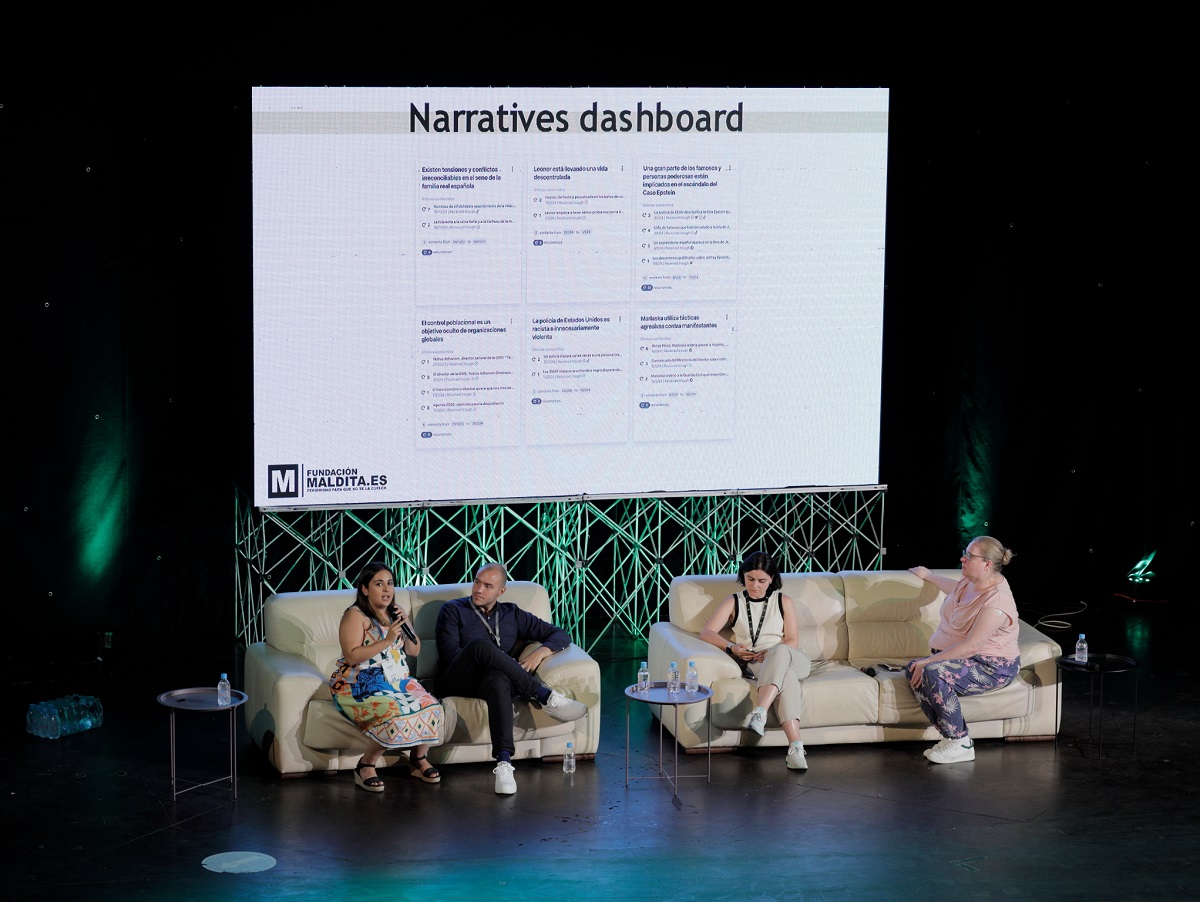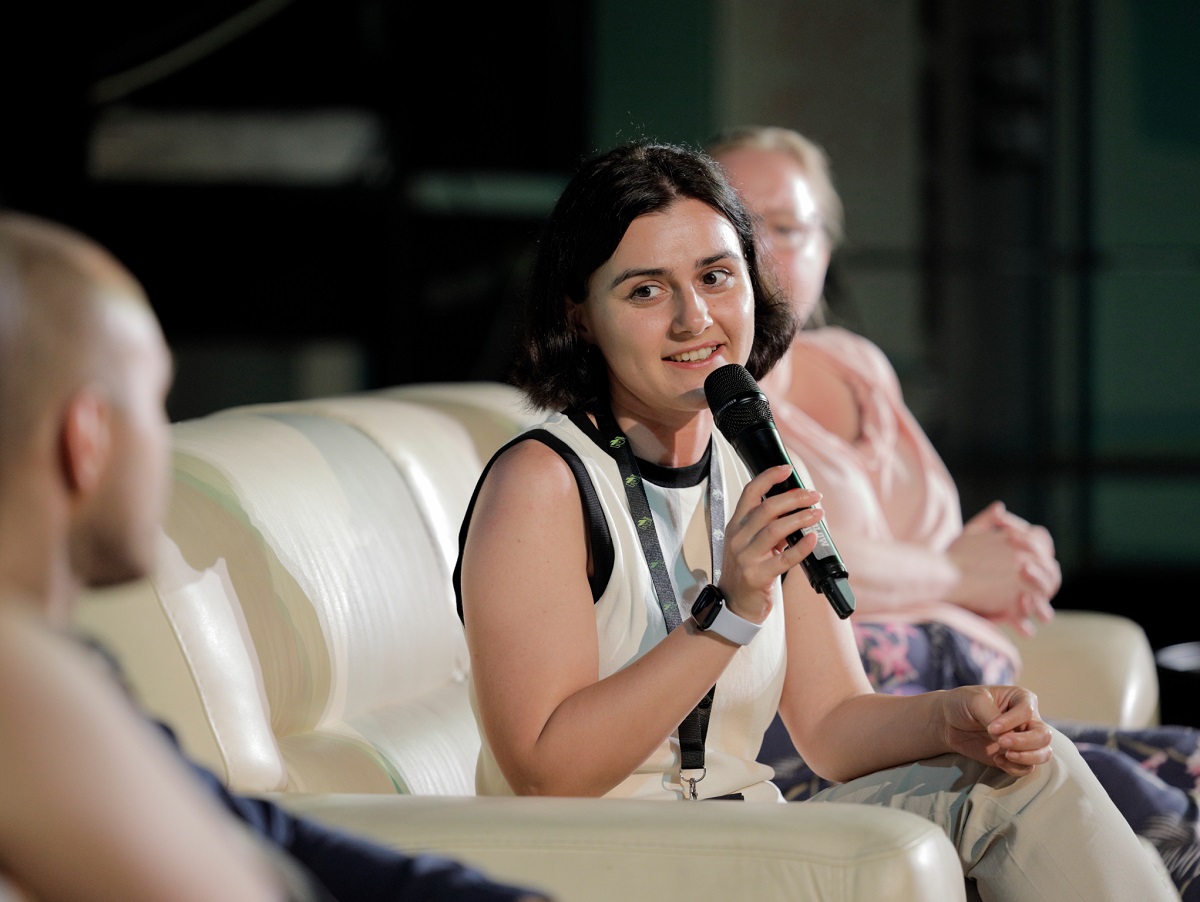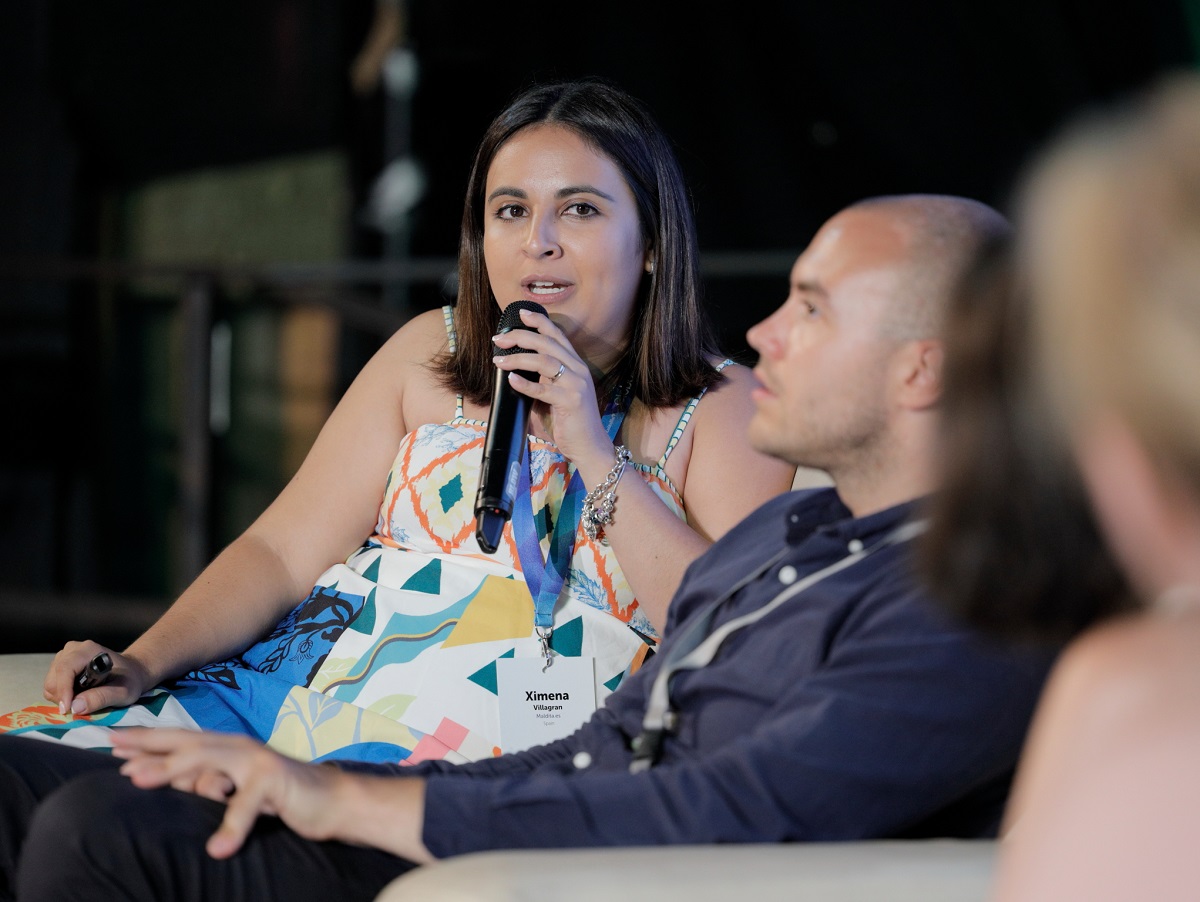Data for Elections and Using AI in Fact-Checking
In an engaging session on the second day of the 12th POINT Conference, two distinct topics related to data and artificial intelligence in the context of elections and fact-checking were explored. Moderated by Anna Kuliberda from “The Radical Act of Self-Care” and Nasir Muftić from the Faculty of Law of the University of Sarajevo, the session featured insightful presentations by Nino Macharashvili from ForSet, Georgia, and Ximena Villagran from Maldita, Spain.

Nino Macharashvili provided an in-depth analysis of how personal data is being used by politicians during elections, with a particular focus on smaller countries like Georgia. Drawing parallels to the notorious Cambridge Analytica case, Macharashvili highlighted how politicians in Georgia have leveraged personal data to influence voter behavior. Her research delved into the 2020 Georgian elections, where traditional methods such as robocalls and mobile texting were employed due to the country’s underdeveloped data infrastructure.
She revealed that despite the lack of sophisticated data exploitation, these conventional tactics were still effectively utilized to sway public opinion. One of the significant issues she identified was the unpreparedness of watchdog organizations and civil society organizations (CSOs) to counter such tactics. This vulnerability, she argued, stems from a combination of limited resources and the rapidly evolving nature of election interference methods.
Macharashvili also discussed the implications of the new “foreign agent” law in Georgia, which poses additional challenges for NGOs working in the country. This law has created an environment of heightened scrutiny and regulatory pressure, further complicating the efforts of organizations striving to maintain electoral integrity and transparency.

A critical point Macharashvili raised was the role of big tech companies in these processes. While these companies have the potential to assist in combating election interference, they also profit from the very activities they are supposed to regulate. This creates a conflict of interest, making reliance on big tech companies a precarious solution. Instead, Macharashvili emphasized the importance of raising public awareness and holding governments accountable through various means, including policy advocacy and grassroots activism.
Ximena Villagran from Maldita presented on the innovative use of artificial intelligence in the fact-checking process. Maldita is an independent fact-checking project from Spain that employs a combination of fact-checking, data journalism, media literacy, and technology to combat disinformation and build resilient communities. Villagran explained that Maldita’s approach to using AI is carefully structured to maintain high ethical standards and protect user privacy.
Maldita employs AI to streamline and enhance their workflows. They ensure that AI tools are used under strict human supervision, meaning that fact-checkers and journalists are integral to the process. This approach ensures that AI is not used to make independent decisions but rather to support human experts in their work. Maldita’s commitment to ethics and privacy is evident in their refusal to share data freely and their ongoing efforts to understand the implications of the AI tools they utilize.

One of the standout initiatives Villagran highlighted was the launch of Maldita’s WhatsApp channels to verify the veracity of news. The channel features a chatbot capable of scanning images, performing multimedia matching, and transcription, effectively linking images to relevant articles and automating the response process. This tool helps users quickly verify information and combat the spread of disinformation.
Villagran also discussed Maldita’s broader efforts in public policy to regulate digital security and artificial intelligence. By engaging in policy advocacy, Maldita aims to shape a regulatory environment that supports digital security and ethical AI usage. Their work in media literacy further empowers communities to critically assess information and reduce their susceptibility to disinformation.
The presentation showcased how Maldita integrates AI into their fact-checking processes while upholding ethical standards and privacy protections. Maldita’s innovative use of technology, combined with their commitment to community engagement and policy advocacy, exemplifies a holistic approach to combating disinformation in the digital age.
Author: Emir Velić